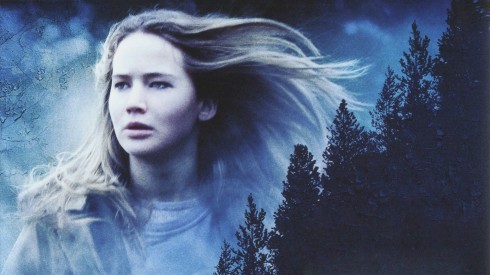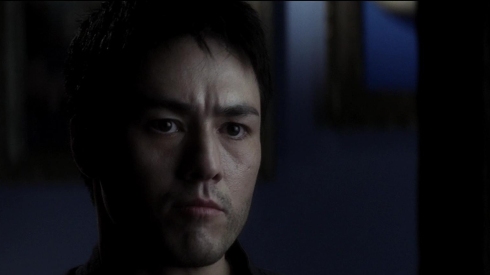Written by: Sarah M. Cradit
Published by: Createspace
St. Charles at Dusk is a romance mystery novel that revolves around a spineless clueless playboy millionaire and the absolutely perfect author avatar billionaire heiress that he just can’t stop thinking about. It is a romance in that it tells the story of these two star-crossed lovers and the inconveniences that come between them; it is a mystery in that the inconveniences that come between them involve amnesia and a presumably jealous rival’s insistence that their time together before ‘the accident’ that created their predicament is either inaccurately remembered or never existed at all.
The theme of this novel is one of memories and of lost time, the bulk of which is explored via a series of flashback sequences within flashback sequences within a larger flashback sequence when these two characters reunite after a longish furlough at the top of the book. While they are presumably staring coldly at each other in a dimly lit room in a New Orleans mansion–something that rich people do I think–Oz the narrator brings the audience up to speed on what has happened with their on again, off again relationship over the previous 10ish years in 300 pages or less, ostensibly conveying just why this relationship happens to be special and why these two long lost lovers are not, in fact, enormous flakes. The challenge for the audience, aside from putting this relatively simple mystery together, comes in when it has to decide whether or not two enormously wealthy people with their heads lodged so firmly up their asses and who have nothing but time on their hands to contemplate the meaning of will-they-or-won’t-they are worth the effort.
Personally, I don’t find rich people to be all that interesting. There is a certain National Enquirer intrigue that comes with peeking into the top and seeing how the other half lives; but, in a love story especially, the wealth becomes a serious obstacle in giving a crap about people who are used to their frilly maids, their 200-room manors overlooking the plebian provinces, and the consummate navel-gazing wankery that goes with the lamentations of having a perfect (if not a tad sheltered) lifestyle. One where character development consists of ravenous consumption of the high arts and sciences, one where any chance or risk that is taken comes with a not-so-dangerous pratfall that is lined with a million and one feathered pillows, one where every action has a meaningless consequence but must be discussed anyway because goddammit the whole bloodline might be but probably isn’t at stake.
You could say that I might be jealous of the excess and comfort and recklessness that is afforded to someone who has nothing to lose and is practically perfect already, and who wouldn’t be? When blessed with every ample opportunity to be happy with what I have been given and what I already have, I’d probably fuck it up, too. And that’s why I can relate somehow to the dashing millionaire playboy Oz’s dilemma of having prize after prize thrown brazenly at his feet, only to be spellbound by the obsessively beautiful and intellectually flawless Adrienne who manipulates and dominates every waking second of his life, who colors his history in such a way that to be without her he is very much a basket case. What I can’t relate to, and probably never will, is the overblown serendipity that underlines Oz’s every action and the diminishing returns of failure after failure as he dismisses just how lucky a person he is to have everything in the world a person could possibly want but to squander every ample opportunity to better his situation because some arbitrary sense of bumbling pride. He doesn’t suffer at the hands of his mistakes much, if at all.
Every romance novel [that I can think of off the top of my head] has some kind of obstacle that opposes the joining of two lovers in holy matrimony, and St. Charles at Dusk is no exception and even boldly offers more than one. First, the nature of Oz and Adrienne’s relationship is contentious in that Oz comes from a family of wealthy lawyers and Adrienne comes from a family of Oz’s family’s clients, who are also good friends. It is revealed that the client is zillionaire Charles Deschanel, and that Adrienne is one of four illegitimate heirs to the family legacy, conceived with a maid or something because he got bored with his wife. Second, Oz and Adrienne grew up together and are separated in age by 5 years; only she is underage when their romance begins for the first time, which spells trouble for a dynasty already riddled with scandal. Naturally, the father does not approve of the affair, even though Oz is probably the best person for her. Third, Adrienne disappears out of the blue one day which abruptly brings the relationship to a halt. The plot revolves around her return two or three years later, stricken with amnesia, and her quest to find herself after living in the care of some plebs, not knowing that she is the sole living heiress to a family fortune, and selfishly demolishing the emotions of every person she comes in contact with.
It is within this turmoil that the novel gains its traction. Where did she go? What did she do? And why is she now deciding to find out the truth about the sixteen years of her past that have been lost to her mind at the time of her disappearance? Unfortunately, the mystery is meandering and needlessly complicated, driven by a narrative that bounces from his point of view to hers across a spectrum of years that dissipate any tensions it aims to build with a voice that is at times brooding, at times mechanical, and at times apathetic. This is exacerbated by the decision to fill in the blanks of Oz’s first person narrative with patches of Adrienne’s third person narrative to better supplement his story. If this move was meant to throw the audience off the scent, it certainly isn’t obvious in retrospect. Further gumming up the works are the descriptions of the various provinces and set pieces around New Orleans that are detailed but feel abstract or obligatory. A limited cast of auxiliary characters is introduced throughout and they are interesting in their own right, but are also not used to their fullest potential and kind of just discarded nonchalantly when they are no longer a need or a threat.
So is a man and a woman coming together who have everything in the world and nothing but time, convenience, and opportunity, something to get really intrigued by? I guess it’s a matter of perspective. Some people completely dig the fantasy of romance and true love and ultimate happiness, that two characters that were imagined for each other can overcome tumultuous odds stacked heavily against their favor, regardless of whether or not these characters could ever be considered ‘real.’ St. Charles at Dusk is a story about love–at the very least there is love in it–but there is something lacking here, some real tragedy, some real grit, that holds back its ambition. I could not say that it swayed me to behold love and all that that entails in a certain way, but I could say that it has left me disappointed in myself for not having been born into a life of uninhibited perfection.
P.S. I’d like to thank a redditor for the term ‘navel-gazing wankery.’ I’m trying to find your comment sir and credit you properly, but I can’t find it and I’m sorry. 😦
Choice Passages
“She pulled off the cloak and carelessly tossed it across the back of my leather sofa in the sitting room. Neurotically, I was one step behind her, wiping the raindrops off of the couch and hanging her cover on the oak coat rack, where it belonged.”
“The more time I spent dating, the less time I gave my personal studies. The behavior that had once defined me slowly became less a part of me until there was no room left for it all.”
“She was absolutely, without a doubt, the smartest human being I had ever known … She had also studied ancient history in her father’s expansive library at Ophélie, and like me, had longed to find someone who found it worthwhile … It was painful for Adrienne to be forced to remain in this world of children when mentally she had already checked out of it.”
“‘Why apologize for what I am?’ she told me later when I asked her why she was often not more delicate with those she loved, more sensitive to the insecurities of others. I apologized for things I was responsible for as well as the things I wasn’t. I was stuck in a perpetual pattern of second-guessing everything I ever did, saying sorry for things that weren’t really my fault.” (Note: Adrienne is 11 and not very adorable in this sequence.)
“‘But,’ I continued, ‘Sometimes I wonder if there isn’t something else out there that I would have been better at. Perhaps even something that would make me happier than this. Yet, if I did that, if I went out and searched for whatever that was, what would my father think? He’s always given me everything I could ever need or ask for and never asked anything in return.”



